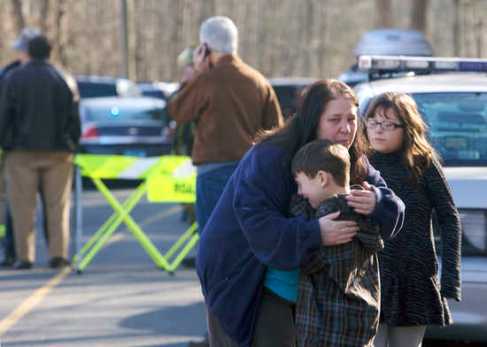
We often have no idea what to say in the face of senseless loss. That is especially true when children are the victims of tragedy. Yesterday’s massacre in Connecticut is heartbreaking in so many ways, not the least of which is the staggering loss of children.
Anyone ministering in the ER after senseless tragedies will hear incredibly bad theology coming from people who think they are helping. Untruth and conjectures do not make a situation better.
Here are five things not to say to grieving family and friends:
1. “God just needed another angel.”
Portraying God as someone who arbitrarily kills kids to fill celestial openings is neither faithful to God, nor helpful to grieving parents.
2. “Thank goodness you have other children,” or, “You’re young. You can have more kids.”
Children are not interchangeable or replaceable. The loss of a child will always be a loss, no matter how many other children a parent has or will have.
3. He/she was just on loan to you from God.
The message is that God is so capricious that God will break parents’ hearts at will just because God can. It also communicates to parents and loved ones that they are not really entitled to their grief.
4. God doesn’t give you more than you can handle.
Actually, some people do get a lot more than any one person should ever have to handle. Don’t trivialize someone’s grief with a “what doesn’t kill you makes you stronger” mentality.
5. “There, there, pull yourself together.”
Jesus did not say this to the family when he stood at the grave of Lazarus. Instead, he himself stood and wept. Job tore his garments and fell to ground – yet, the text says, he did not sin in doing this.
And here are five things to say:
1. This breaks the heart of God.
From beginning to end, the Bible speaks of God’s emotions of grief and anger at evil and his heart for the brokenhearted. He invites us to come to him, tell him our grieve, and know he is approachable.
2. It’s okay to be angry, and I’m a safe person for you express that anger to if you need it.
Anger is an essential part of the grieving process, but many don’t know where to talk about it because they are often silenced by others when they express their feelings. (For instance, they may be told they have no right to be angry at God.) By saying you are a safe person to share all feelings, including anger, with, you help the grieving person know where they can turn.
3. What happened is not okay.
It seems so obvious, but sometimes this doesn’t get said. Sometimes the pieces don’t fit. Sometimes nothing works out right. And sometimes there is no way to fix it. Naming it can be helpful for some because it lets them know you won’t sugarcoat their grief. The writers of Scripture often asked, “How long, O Lord, how long does this have to go on?”
4. I don’t know why this happened.
When trauma happens, the shock and emotion comes first. But not long after comes our human need to try to explain “why?” The reality is that often we cannot. The grieving person will likely have heard a lot of theories about why a trauma occurred. Sometimes it’s best not to add to the chorus, but to just acknowledge what you do not know.
5. I can’t imagine what you are going through, but I care and I am here for you in whatever way you would like.
Even if you have faced a similar loss, remember that each loss is different. Saying “I know how you’re feeling” is often untrue. Instead, ask how the grieving person is feeling. And then ask what you can do to help. Then, do it and respect the boundaries around what they don’t want help with at this point. You will be putting some control back into the hands of the grieving person, who often feels like they have lost so much of it.
It goes without saying – but sensitive, short and trusting prayer is both right and needed.
Adapted from an article by Emily Heath













